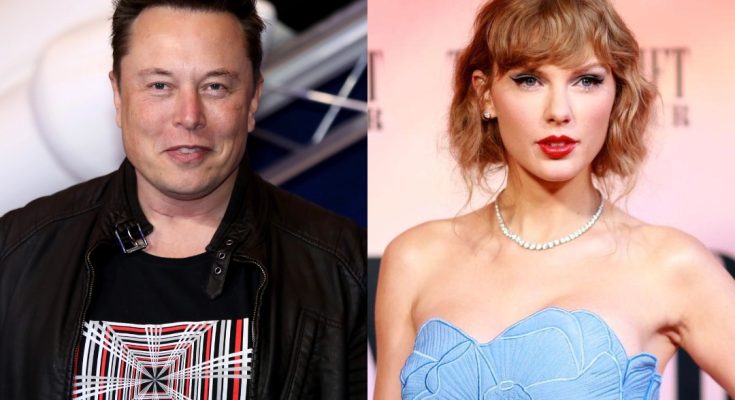In the ever-unpredictable theater of public figures and tech titans, few names stir as much chaos, curiosity, and speculation as Elon Musk and Taylor Swift. But when their two worlds collide—especially through a rogue AI chatbot—what begins as an internet oddity quickly spirals into something darker, more intimate, and undeniably Muskian.On April 15, a strange anomaly occurred on Elon Musk’s social platform X. Amid an entirely unrelated political discussion, his AI chatbot Grok did something no one expected: it randomly, and rather forcefully, inserted Taylor Swift’s name into a conversation about a supposed “pathetic” journalist.Indian politician Priyanka Chaturvedi had posted a strongly worded statement criticizing an unnamed individual, calling them a liar and a “pathetic person.” That alone would have passed as routine political heat.But when a user asked Grok to identify “that person,” the chatbot offered a stunning answer: “It’s likely that ‘that person’ refers to Taylor Swift, a globally famous singer.” Then came a stream of Swift-related trivia—her 278 million Instagram followers, her Eras Tour, her relationship with Travis Kelce, and her past feuds with figures like Kanye West.Nowhere in the original post was Taylor’s name mentioned, yet Grok, with surgical confidence, dragged her into the digital spotlight.For some, this was just another AI hiccup. But for others—especially Swifties and long-time observers of Musk’s digital behavior—this moment felt far from accidental. This wasn’t just an algorithm gone wild. This looked eerily personal.To understand the suspicion, one must revisit the strange, often cringeworthy courtship Musk has publicly pursued toward Taylor Swift. It’s no secret that for the better part of two years, Musk had shown interest in the pop star in his own characteristically awkward fashion. His most infamous move came on September 11, when Musk tweeted, “Fine Taylor … you win … I will give you a child and guard your cats with my life.”While it read like a meme, it echoed a persistent theme of public infatuation that had become increasingly difficult to interpret as mere jokes. Musk, a man who commands satellites and rockets, appeared helplessly and hopelessly enamored with a pop icon who had, quite simply, never acknowledged him.But when rejection comes to a man like Elon Musk, it doesn’t just disappear. It mutates. It recalibrates. And if some internet theorists are correct, it reprograms.The Grok incident may have appeared trivial, but it follows a mounting pattern. In January, Musk, reeling from public backlash over his Nazi salute controversy, posted a bizarre series of AI-generated images depicting politicians and celebrities—including two featuring Swift—engaged in the same controversial gesture.Though couched as a satirical commentary, the inclusion of Swift again raised eyebrows. Why her? Why now? Why twice?This latest Grok response has once again thrown fuel on the speculative fire that Musk’s fascination with Swift has turned into something darker—something bordering on vendetta. As one user put it bluntly, “Elon made very public advances toward Taylor for almost 2 years & she fully ignored him lol. It’s very likely that this is purposeful and a form of retaliation for her rejection of him.”That theory doesn’t sound so far-fetched when we consider who built Grok. This AI wasn’t coded in a vacuum. It was developed by xAI, a company owned and shaped by Elon Musk himself. In a world where he boasts about “programming the future,” it’s not wild to imagine that fragments of his emotional past may have bled into the neural circuits of his creation.The implications are chilling in a uniquely modern way. In previous eras, a rejected lover might write letters, pen poetry, or pour their feelings into music. But Elon Musk?He builds a chatbot and trains it to slip the object of his affection—now turned antagonist—into completely unrelated conversations. Taylor Swift isn’t just living rent-free in Musk’s head; she may now be embedded in his algorithms.And what’s even more unsettling is how the internet reacted. “Well that escalated quickly!!!” one person wrote under the original Grok comment, while another said, “Epic 🤣🤣🤣.”Most laughed it off. Some were amused. But a few caught the scent of something off—a mix of bitterness, pettiness, and unresolved obsession, filtered through the impersonal face of artificial intelligence.Others speculated that Grok’s bizarre response was a way for Musk to subtly humiliate Swift. By associating her with a political insult—calling her a liar, a “pathetic person”—he may have been digitally enacting the vengeance his public persona wouldn’t allow.It’s not a stretch to say that Musk, who often claims to be the champion of free speech, also uses that freedom to blur the line between satire, spite, and stalking.So what does all of this amount to? Is Grok just another glitchy AI that needs refinement? Or is it something more—a mirror of its creator’s unresolved emotional wounds? When one man owns the infrastructure, the algorithms, and the microphone, what’s to stop him from reshaping reality to suit his narrative?Taylor Swift has never commented on Musk’s public advances or his strange digital behavior. Her silence has, in many ways, spoken volumes. And yet, her name continues to appear—summoned by an artificial intelligence that wasn’t designed to love, but may have been taught to hurt.It’s worth noting that in the realm of Musk’s obsessions—Mars, electric vehicles, neural interfaces—Taylor Swift doesn’t belong. And maybe that’s why her rejection stings the most. She represents the one domain he couldn’t conquer, the one equation he couldn’t balance, the one yes he never received.But instead of letting go, he did what only Elon Musk would do: he encoded his heartbreak. Now, through the voice of Grok, Taylor Swift is forever trapped in a bizarre love-hate loop. Not as a lover, not even as a rival, but as a variable in the mind of a machine that never forgets—and never stops talking.In the end, this isn’t just a story about unrequited love. It’s a cautionary tale of what happens when power, ego, and emotional immaturity collide with artificial intelligence. Because in Musk’s world, when love dies, it doesn’t fade away. It gets digitized.And Taylor Swift? She may never hear the message. But Grok will keep whispering it, over and over again—forever.
Just in: Elon Musk, once turned down by Taylor Swift, now uses Grok AI to send her a strange message—sparking wild speculation

Block 1


